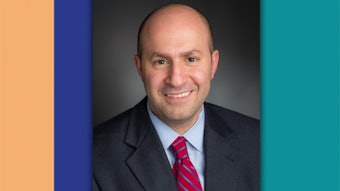Managing stone disease is more than surgery
Reducing the risk of recurrent stones is key.

Stone disease makes up a significant percentage of practice for most urologists, but for many patients, managing kidney stones starts and stops with stone removal. However, removing stones is only one part of effective management.
“Not only do we need to follow the guidelines for the removal of symptomatic stones, but hand-in-hand with surgery we need to evaluate the metabolic potential for stone formation and prevent stones from recurring,” said Glenn M. Preminger, MD, chief of urologic surgery at Duke University Medical Center in Durham, North Carolina. “With the appropriate metabolic evaluation, medical and/or dietary management and follow-up, we can reduce the risk of recurrent stones by 90% to 95%.”
The AUA published its first guideline on the medical management of stone disease in 2014 with an important update in 2019 that was eclipsed by the COVID-19 pandemic. Dr. Preminger will lead “Practical Medical Management of Nephrolithiasis — A Guidelines and Case-Based Approach” on Friday afternoon to help urologists catch up with current practice recommendations.
He will be joined by Roger L. Sur, MD, professor of urology and founding director of the UC San Diego Comprehensive Kidney Stone Center, and George E. Haleblian, MD, an associate surgeon at Brigham and Women’s Hospital in Boston and co-director of the Brigham and Women’s Comprehensive Kidney Stone Program.
Kidney stone disease is a common complaint, affecting about one in 11 individuals in the United States. Unlike appendicitis or other surgical conditions, surgical treatment of stones is not the endpoint of the disease process, Dr. Preminger noted. At least half of patients experience another stone within 10 years of their initial episode. Urologists are uniquely positioned to evaluate patients for their metabolic potential to form new stones and recommend both medical and dietary interventions shown to reduce recurrence.
The guidelines note that metabolic evaluation is appropriate for all high-risk and recurrent stone formers as well as first time stone formers who may be interested in reducing their risk of recurrent stones. There are specific analyses and test procedures that should, and should not, be performed routinely.
The guidelines offer specific recommendations for dietary interventions. Some recommendations have solid, Grade B evidence based on large cohort studies and randomized controlled trials. Other recommendations are based on expert opinion in the absence of strong data.
There are also specific pharmacologic recommendations that can reduce the risk of future stone formation, some based on clinical trial data and others on expert opinion.
There have been no head-to-head comparisons of dietary interventions and pharmacologic therapy. Management recommendations include diet and/or drug interventions, which have the advantage of flexibility for patients who may prefer one approach over another.
“The key areas are recognizing who deserves or needs to undergo metabolic evaluation, the best ways to identify the underlying risk factors for recurrent stone formation and, finally, to develop a risk-based management plan to enable appropriate dietary and/or medical therapy to significant reduce the risk of recurrent stone disease,” Dr. Preminger said. “Given that, we want the urologist to completely manage patients with stone disease. Feeling more comfortable implementing metabolic evaluation and appropriate therapy will yield tremendous benefits to our patients.”











